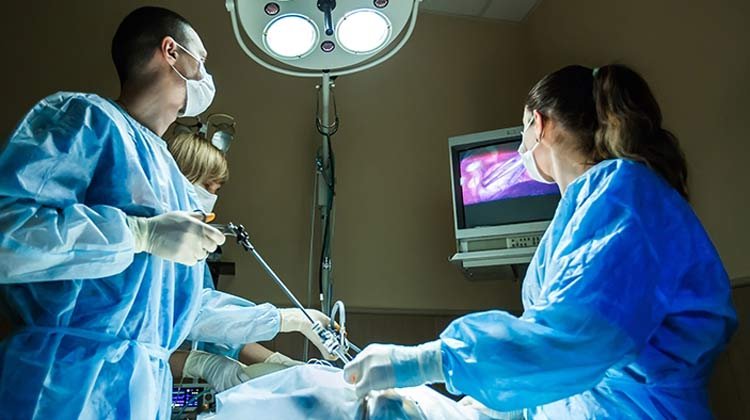Laparoscopic Kidney Stone Removal

What Are Kidney Stones?
Kidney stones are hard mineral deposits that form inside the kidneys. While small stones may pass through urine, larger stones can cause severe pain, blockage, infection, or kidney damage. In such cases, surgery becomes necessary.
At A1 Laparoscopy Hospital, we offer laparoscopic kidney stone removal — a safe, effective, and minimally invasive option for large or impacted stones.
When Is Laparoscopic Removal Needed?
Laparoscopic surgery is considered when:
- Stones are too large to pass naturally
- Stones are stuck in the kidney or ureter
- Other methods (like lithotripsy or medication) have failed
- Stones are causing infections, swelling, or kidney damage
- The patient has anatomic abnormalities needing surgical correction
This technique is especially helpful when non-invasive treatments are not suitable.
How the Procedure Works
At our hospital, laparoscopic kidney stone removal is performed under general anesthesia. Here’s how the procedure is done:
- A few small incisions (keyholes) are made in the abdomen
- A laparoscope (camera) is inserted to locate the stone
- The surgeon carefully removes the stone using fine instruments
- If needed, the kidney or ureter is repaired during the same surgery
- The incisions are closed with minimal stitching
The surgery usually takes 1 to 2 hours, and most patients go home within 1–2 days.
Benefits of Laparoscopic Stone Removal
Compared to traditional open surgery, this approach offers several key advantages:
- Small incisions and minimal scarring
- Less blood loss and reduced pain
- Shorter hospital stay
- Faster return to work and daily life
- High stone clearance rate
- Lower risk of complications
Why Choose A1 Laparoscopy Hospital?
We ensure precise treatment and faster recovery with expert care:
- Experienced Surgeons: Specialised in advanced laparoscopic urology
- 24×7 Hospital Services: ICU, diagnostics, pharmacy, and anesthesia
- Affordable Packages: Transparent costs with no hidden charges
- Advanced Equipment: High-definition laparoscopy systems
- Post-Operative Support: Follow-up care, dietary guidance, and prevention tips
Aftercare and Recovery
Most patients recover quickly with minimal discomfort. Here’s what to expect:
- Hospital stay: 1 to 2 days
- Resume daily activities: Within 5 to 7 days
- Full recovery: Usually in 2 to 3 weeks
- Follow-up imaging to ensure no residual stones
- Hydration and diet recommendations to prevent recurrence
We also evaluate the stone’s composition and guide you on long-term prevention.
Frequently Asked Questions
Q. Is laparoscopic removal better than laser?
Ans: Both are effective, but laparoscopic surgery is preferred for larger or complex stones that cannot be treated with laser or shockwave methods.
Q. Will the surgery be painful?
Ans: The procedure is done under anesthesia. Post-surgery pain is mild and manageable with medication.
Q. Can kidney stones come back?
Ans: Yes, but recurrence can be reduced through proper hydration, diet, and follow-up care.
Q. Is this procedure safe for older adults?
Ans: Yes. It is safe and widely used in elderly patients when other methods are not effective.
